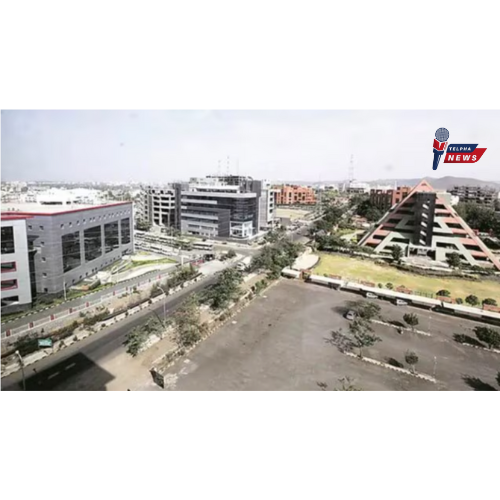In the past decade, Hinjewadi IT Park, once hailed as a hub of technological advancement in Pune, India, has witnessed an alarming exodus of 37 IT companies. This significant departure underscores a pressing issue: inadequate infrastructure. As an SEO expert and keen observer of industry trends, it’s crucial to dissect the reasons behind this trend and understand the broader implications for businesses and the local economy.

The Hinjewadi IT Park Saga: A Brief Overview
Hinjewadi IT Park, located in the Pune Metropolitan Region, was established to be a beacon for IT and technology companies, offering state-of-the-art facilities and a conducive business environment. Initially, it attracted numerous multinational corporations (MNCs) and startups alike, thanks to its promising infrastructure and strategic location. However, over the past ten years, the park has seen a marked decline in tenant companies, with 37 firms moving out due to infrastructure-related concerns.
Key Infrastructure Issues Contributing to the Exodus
- Traffic Congestion: One of the most significant grievances of companies in Hinjewadi IT Park is the severe traffic congestion. The infrastructure developments in and around the park have not kept pace with the rapid influx of businesses and their employees. This has led to longer commute times, impacting productivity and employee satisfaction.
- Inadequate Public Transport: The lack of efficient and reliable public transportation options has been another major issue. Many companies find it challenging to ensure their employees have convenient access to the park, which in turn affects recruitment and retention.
- Poor Maintenance and Upgrades: Infrastructure maintenance and upgrades have not been consistent. Issues such as frequent power outages, inadequate water supply, and insufficient waste management have plagued the park, leading companies to seek more reliable locations.
- Overburdened Facilities: The facilities and amenities provided within the park are often described as outdated or overburdened. This includes insufficient parking space, inadequate recreational areas, and limited dining options, which are crucial for employee satisfaction and well-being.
Impact on the Local Economy and Business Ecosystem
The departure of these 37 companies has far-reaching implications. The immediate impact includes a reduction in local employment opportunities and a decrease in business for nearby services and vendors. Over the long term, this trend can damage the reputation of Hinjewadi IT Park, making it less attractive to potential new tenants and investors.
Moreover, the loss of these companies signifies a potential shift in the IT landscape of Pune. Companies might relocate to more promising areas, leading to a redistribution of economic activity and possibly creating new growth hubs.
Future Prospects and Recommendations
To reverse this trend and restore the Hinjewadi IT Park to its former glory, several steps are crucial:
- Infrastructure Overhaul: A comprehensive review and upgrade of the park’s infrastructure are essential. This includes improving road conditions, enhancing traffic management, and upgrading utilities and facilities.
- Enhanced Public Transport: Developing efficient public transportation links will improve accessibility and make the park more attractive to potential tenants.
- Regular Maintenance: Ensuring regular maintenance and timely upgrades to facilities will help in retaining existing companies and attracting new ones.
- Stakeholder Collaboration: Collaboration between government bodies, park management, and businesses is vital to address these issues effectively and create a sustainable business environment